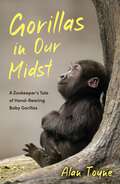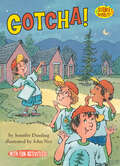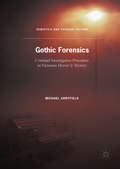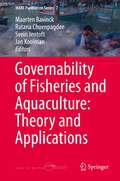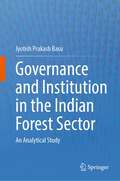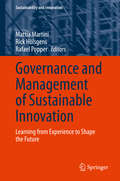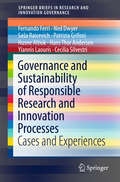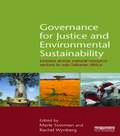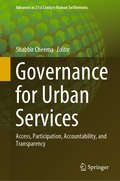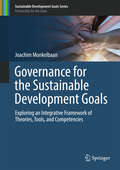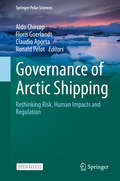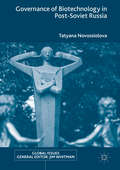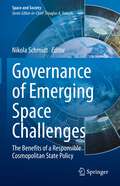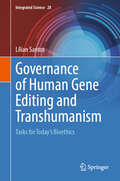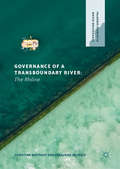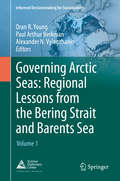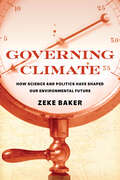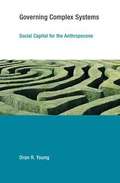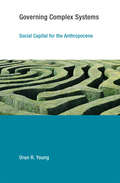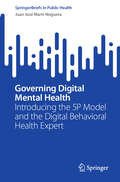- Table View
- List View
Gorillas in Our Midst: A Zookeeper’s Tale of Hand-Rearing Baby Gorillas
by Alan ToyneWhen Afia, a newborn Western Lowland Gorilla, is rejected by her mother Kera, her human keeper Alan must start the challenging - but rewarding - experience of hand-rearing her at home. Gorillas in Our Midst offers a unique glimpse into the intricate world of primate social dynamics, in all their complicated, human-like glory.
Gorillas: Natural History and Conservation
by Kelly J. StewartGorillas covers the characteristics (life history, group life, reproduction, mortality) and ecology of these creatures. Stewart also discusses the serious threats that gorillas face, and informs readers about what can be done to protect gorillas.
Gory Details: Adventures From The Dark Side Of Science
by Erika EngelhauptUsing humour and real science in the tradition of Mary Roach, this groovy narrative from the author of National Geographic's popular Gory Details blog illuminates the gross, strange, morbid, and outright absurd realities of our bodies, our earth, and our universe. Filled to the brim with far-out facts, this wacky, funny, and informative narrative takes us on a fascinating journey through the astonishing world of science. With Erika Engelhaupt, founding editor of National Geographic's Gory Details blog, as your guide, all your weirdest and wildest fascinations will be illuminated. From the biologist who endured countless honeybee stings to test which spot was the most painful to the dollhouse-sized replicas of crime scenes built to analyze blood splatter to NASA's enduring dilemma--do women need to have their periods in space?--this entertaining book explores oft-ignored but alluring facets of biology, anatomy, space exploration, nature, and more. Featuring top-notch reporting, interviews with leading researchers in the field, and a healthy dose of wit, Gory Details depicts the world's most intriguing real-world applications of science in all their glory--making geekiness cool all over again!
Gotcha! (Science Solves It!)
by Jennifer DusslingSolve kid-sized dilemmas and mysteries with the Science Solves It! series. These fun books for kids ages 5–8 blend clever stories with real-life science. Why did the dog turn green? Can you control a hiccup? Is that a UFO? Find the answers to these questions and more as kid characters dive into physical, life, and earth sciences. While telling ghost stories at camp, Peter secretly uses a magnet to make a trunk slam shut and a spoon move across a table. Books in this perfect STEM series will help kids think like scientists and get ahead in the classroom. Activities and experiments are included in every book! (Level Two: Science topic: Magnets)
Gothic Forensics
by Michael ArntfieldMichael Arntfield interrogates the legacy of Victorian-era crime fiction and Gothic horror on investigative forensic methods used by police today.
Gould's Pathophysiology for the Health Professions (Fifth Edition)
by Karin C. Vanmeter Robert J. HubertThis book provides an introduction to pathophysiology for students in a variety of academic programs and describes major disorders as well as selected additional diseases with the intention of providing information on a broad spectrum.
Governability of Fisheries and Aquaculture: Theory and Applications
by Jan Kooiman Svein Jentoft Ratana Chuenpagdee Maarten BavinckFollowing from Fish for Life - Interactive Governance for Fisheries (Kooiman et al., 2005), which presents an interdisciplinary and intersectoral approach to the governance of capture and aquaculture fisheries, this volume pursues what interactive governance theory and the governability perspective contribute to the resolution of key fisheries problems, these include overfishing, unemployment and poverty, food insecurity, and social injustice. Since these problems are varied and can be felt among governments, resource users and communities globally, the diagnosis must be holistic, and take account of principles, institutions, and operational conditions. The authors argue that 'wicked problems' and institutional limitations are inherent to each setting, and must be included in the analysis. The volume thereby offers a new lens and a systematic approach for analysing the nature of problems and challenges concerning the governance of fisheries, explores where these problems are situated, and how potential solutions may be found. "It now seems clear that the crisis in the world's fisheries [is] a much larger and more complex problem than many had imagined. Yet, examining it through the lens of governability may offer the best hope for alleviating it--as well as alleviating similar crises in other social systems." James R. McGoodwin (Professor Emeritus, University of Colorado)
Governance and Institution in the Indian Forest Sector: An Analytical Study
by Jyotish Prakash BasuThis book addresses quantitative assessment of forest governance and how local-level institutions work in governing efficient ways of forest resource management so that sustainable development of forest is ensured. The research is done at the micro-level as well as macro-level in India. The research presented here focuses on forest governance and institutions in the two forest divisions of West Bengal say South Bengal and North Bengal. The research covers 36 villages, 844 households, 10 Gram panchayat, 12 Beat offices, and 36 Forest protection Committees in West Bengal and also studies different local-level institutions like local communities/households; Joint Forest Management Committees (JFMC)/Forest Protection Committees (FPCs); Community Forest Management groups; Van Panchayats; Village Councils (schedule VI area) and Biodiversity Management Committees; Eco-development committees, NGOs and Self-Help Groups, and Panchayati Raj Institutions (PRIs). Chapters also address various issues like monitoring, enforcement, rule of law, transparency, accountability, participation, control of corruption, government effectiveness, regulatory quality, and sustainable livelihood in connection with the study of forest governance. This research is associated with different sectors like agricultural sector, forestry sector, informal sectors and rural development, etc., and involved multi-stakeholders. Particular attention is given on the policy-oriented research which is the cornerstone of SDG of 16. Developmental practitioners, government implementation agencies, researchers in environmental science and social science, and policymakers find this book appealing.
Governance and Management of Sustainable Innovation: Learning from Experience to Shape the Future (Sustainability and Innovation)
by Mattia Martini Rick Hölsgens Rafael PopperSustainable innovation (SI) is considered to be a key driver of societal progress in an era of enormous economic, environmental and societal challenges, and the uncertainties and future consequences that come with them. This book provides evidence, insights and reflections related to specific issues of governance, the management of sustainable innovation and applying a multi-level, multi-stakeholder approach to sustainable innovation analysis. Building on the European Commission (EU) funded research project “Public Participation in Developing a Common Framework for the Assessment and Management of Sustainable innovation” (CASI), it presents tools for assessing and managing sustainable innovation, and reflects on SI-related policies as well as citizens’ aspirations. The book is intended for scholars in the field of sustainable innovation, as well as to policymakers, innovators, students and citizens.
Governance and Sustainability of Responsible Research and Innovation Processes: Cases and Experiences (SpringerBriefs in Research and Innovation Governance)
by Hans Thor Andersen Fernando Ferri Ned Dwyer Saša Raicevich Patrizia Grifoni Husne Altiok Yiannis Laouris Cecilia SilvestriThis book provides methods and practical cases and experiences with the aim of stimulating Responsible Research and Innovation (RRI) through the direct engagement of researchers, Civil Society Organisations (CSOs), citizens, industry stakeholders, policy and decision makers, research funders and communicators. The book furthermore aims to advance debate on Responsible Research and Innovation and also to reinforce the RRI community identity. With chapters covering governance, public engagement and inclusion in responsible R&D and innovation processes; RRI actions in science education and communication; gender and ethical issues in RRI initiatives; and sustainability of RRI processes, the book is solidly part of the Europe 2020 strategy to promote a vision for a stronger collaborations between social, natural and physical scientists and the societal actors for a wider dimensions of science and innovation and the role in environmental preservation.
Governance for Justice and Environmental Sustainability: Lessons across Natural Resource Sectors in Sub-Saharan Africa
by Rachel Wynberg Merle SowmanUnderstanding the governance of complex social-ecological systems is vital in a world faced with rapid environmental change, conflicts over dwindling natural resources, stark disparities between rich and poor and the crises of sustainability. Improved understanding is also essential to promote governance approaches that are underpinned by justice and equity principles and that aim to reduce inequality and benefit the most marginalised sectors of society. This book is concerned with enhancing the understanding of governance in relation to social justice and environmental sustainability across a range of natural resource sectors in Sub-Saharan Africa. By examining governance across various sectors, it reveals the main drivers that influence the nature of governance, the principles and norms that shape it, as well as the factors that constrain or enable achievement of justice and sustainability outcomes. The book also illuminates the complex relationships that exist between various governance actors at different scales, and the reality and challenge of plural legal systems in much of Sub-Saharan Africa. The book comprises 16 chapters, 12 of them case studies recounting experiences in the forest, wildlife, fisheries, conservation, mining and water sectors of diverse countries: Madagascar, Zimbabwe, Botswana, Namibia, South Africa, Zambia, Mozambique, Sierra Leone and Cameroon.Through insights from these studies, the book seeks to draw lessons from the praxis of natural resource governance in Sub-Saharan Africa and to contribute to debates on how governance can be strengthened and best configured to meet the needs of the poor, in a way that is both socially just and ecologically sustainable.
Governance for Urban Services: Access, Participation, Accountability, and Transparency (Advances in 21st Century Human Settlements)
by Shabbir CheemaThis book examines three vital issues in urbanization and democratization: the institutional structures and processes of urban local governance to improve access to urban services; their outcomes in relation to low-income groups’ access to services, citizen participation in local governance, accountability of local leaders and officials, and transparency in local governance; and the factors that influence access to urban services, especially for the poor and marginalized groups. Further, it describes decentralization policies, views of the residents of slums on the effectiveness of government programs, and innovations in inclusive local governance and access to urban services.
Governance for the Sustainable Development Goals: Exploring An Integrative Framework Of Theories, Tools, And Competencies (Sustainable Development Goals Series)
by Joachim MonkelbaanThis book provides a detailed overview of governance for the Sustainable Development Goals (SDGs). Adopting a unique integrative approach, it examines the fragmentation of governance that is a critical barrier to achieving the SDGs. The main question addressed is: What are the crucial elements and the organizing logic of an integrative framework that is suitable for analysing governance for the SDGs and for implementing the transitions that we need towards a more sustainable world?This transdisciplinary book first proposes a combination of innovative governance theories that can improve the analysis and practice of sustainability governance. Secondly, it explores the interests of core actors in a number of case examples. And thirdly, it offers recommendations for improving the study and practice of sustainability governance.The findings presented form the basis for a new approach to governance towards objectives such as the SDGs: Integrative Sustainability Governance (ISG). The ensuing ISG framework includes indicator frames within the pillars of power, knowledge and norms. The book concludes that the transformation of crisis into sustainability transitions requires a deeper consideration of risk management that strengthens resilience; systems deliberation that complements democracy; and behavioral insights that elevate human awareness and collaboration. This handbook is a comprehensive and valuable companion for students, experts and practitioners with an interest in the SDGs.
Governance of Arctic Shipping: Rethinking Risk, Human Impacts and Regulation (Springer Polar Sciences)
by Claudio Aporta Aldo Chircop Floris Goerlandt Ronald PelotThis open access book is a result of the Dalhousie-led research project Safe Navigation and Environment Protection, supported by a grant from the Ocean Frontier Institute’s the Canada First Research Excellent Fund (CFREF). The book focuses on Arctic shipping and investigates how ocean change and anthropogenic impacts affect our understanding of risk, policy, management and regulation for safe navigation, environment protection, conflict management between ocean uses, and protection of Indigenous peoples’ interests. A rapidly changing Arctic as a result of climate change and ice loss is rendering the North more accessible, providing new opportunities while producing impacts on the Arctic. The book explores ideas for enhanced governance of Arctic shipping through risk-based planning, marine spatial planning and scaling up shipping standards for safety, environment protection and public health.
Governance of Biotechnology in Post-Soviet Russia
by Tatyana NovossiolovaThis book provides an up-to-date analysis of the governance of biotechnology in post-Soviet Russia. The rapid advancement of the life sciences over the past few decades promises to bring tremendous benefits, but also raises significant social, ethical, legal, and security risks. Nations' adaptability to the twin challenges of attempting to secure the benefits while reducing the risks and threats is a large and still burgeoning governance challenge. Here, Novossiolova cuts across several sets of literature, bringing together elements of the anthropological study of culture; history of science and technology; management and international governance; and Soviet history and politics. Due to its multidisciplinary approach, in-depth analysis, accessible style, and extensive reference list, this text offers invaluable insights into the normative dimensions of the governance of biotechnology, unpacking both the formal and intangible attributes and artefacts of biotechnology policy and practice in Russia.
Governance of Emerging Space Challenges: The Benefits of a Responsible Cosmopolitan State Policy (Space and Society)
by Nikola SchmidtThis edited volume discusses how even small nation states can make a significant difference in the future of space governance. The book is divided into three main sections covering political theory, case studies, and space technology and applications. Key topics of discussion include planetary defense, space mining, and high-power systems in space. Through these timely subjects, the book presents strategies for developing a truly global governance framework in space, based on the concept of a responsible cosmopolitan state. Authored by a multidisciplinary group of researchers from the Czech Republic, the volume will appeal to other scientific teams and policymakers looking to become pioneers of cosmopolitan space policies at a national and global level.
Governance of Human Gene Editing and Transhumanism: Tasks for Today’s Bioethics (Integrated Science #28)
by Lílian SantosAre there any commonalities between Transhumanism and the WHO framework for global governance of human genome editing? If yes, what are they and what are the implications for Bioethics? To find possible common themes, the author applied the reflective thematic analysis (RTA) method to a set of texts on Transhumanism and a set of texts on the global governance of human genome editing. The selected transhumanist texts were the three documents Humanity+, the former World Transhumanist Association, calls the &“original documents on Transhumanism&” (The Transhumanist Declaration, Transhumanist FAQ 3.0, The Transhumanist Manifesto v.4). The selected texts to represent the global governance of human genome editing were the three documents published by WHO on the topic in 2021, the only plan for the global governance of this biotechnology to date (Human genome editing: a framework for governance, Human genome editing: recommendations, Human genome editing: position paper). As a result of the application of the RTA method to the selected texts, the author presents and explains three common themes. What does this mean for our society? What are the implications of the current situation? What are the tasks for Bioethics? There are emerging questions on the human condition and new concerns to be addressed by Bioethics, such as the do-it-yourself mentality. The limitations of &“therapy vs. enhancement&” ask for serious work on a better bioethical paradigm. This book analyses the object, intentions, and circumstances of enhancement in general and recommends the principle of proportionality. The author questions the predominant values and propose a refinement to some conceptions of autonomy, protection, and equality. Finally, this book offers key elements for the bioethical evaluation of each type of human genome editing. Recognising the current situation and working on the identified tasks has become crucial for contemporary Bioethics.
Governance of Radioactive Waste, Special Waste and Carbon Storage: Literacy in Dealing with Long-term Controversial Sociotechnical Issues (Springer Textbooks in Earth Sciences, Geography and Environment)
by Thomas FlüelerThis book demonstrates that the long-term safety of nuclear waste repositories, special waste disposal and carbon storage (CCS) is highly challenging and monitoring may contribute to substantiate evidence, support decision making and legitimise the programme. Deep geological disposal is a long-term safety issue and, in parallel, requires long-term institutional involvement of the technoscientific community, waste producers, public administrators, NGOs and the public. What, where and when to monitor is determined by its goal setting: It may be operational, confirmatory (in the near field) or environmental (far field). Strategic monitoring as proposed here contributes to process, implementation or policy and institutional surveillance. It not only addresses the controversial long-lasting “problem” (of nuclear, other toxic or CO2 waste) but investigates some ways to approach for “solutions” or solution spaces – not just technical but also institutional, societal and personal. It includes the tailored transfer of knowledge, concept and system understanding, experience and documentation to specific audiences above. It is an integrative tool of targeted yet adaptive management and may be applicable to other long-term sociotechnical fields.
Governance of a Transboundary River: The Rhône (Palgrave Studies in Water Governance: Policy and Practice)
by Christian Bréthaut Géraldine PfliegerThis book examines the issues at stake in transboundary water governance, it spotlights the Rhône River, a biophysical entity of enormous historical, political and economic importance. The Rhône has long been viewed essentially as a tool for energy production, heavily canalized and exploited by a series of dams and nuclear power plants – with the result that those who live along this great river have simply turned away. Basing their work on a detailed analysis of the history and the current management of the Rhône, the authors explore the challenges linked with transboundary river basin governance including relevant international water law, appropriation of river and river resources by Nation States. Finally, they discuss a diverse range of institutional architectures and outlines several solutions that might cope with the growing complexity of transboundary management of a major river. The book will be of interest to scholars in fields such as environment studies, water policy and Natural Resource Management, it also has relevance to water managers and entrepreneurs concerned with staying abreast of developments in water policy and governance.
Governing Arctic Seas: Volume 1 (Informed Decisionmaking for Sustainability)
by Oran R. Young Paul Arthur Berkman Alexander N. VylegzhaninGoverning Arctic Seas introduces the concept of ecopolitical regions, using in-depth analyses of the Bering Strait and Barents Sea Regions to demonstrate how integrating the natural sciences, social sciences and Indigenous knowledge can reveal patterns, trends and processes as the basis for informed decisionmaking. This book draws on international, interdisciplinary and inclusive (holistic) perspectives to analyze governance mechanisms, built infrastructure and their coupling to achieve sustainability in biophysical regions subject to shared authority. Governing Arctic Seas is the first volume in a series of books on Informed Decisionmaking for Sustainability that apply, train and refine science diplomacy to address transboundary issues at scales ranging from local to global. For nations and peoples as well as those dealing with global concerns, this holistic process operates across a ‘continuum of urgencies’ from security time scales (mitigating risks of political, economic and cultural instabilities that are immediate) to sustainability time scales (balancing economic prosperity, environmental protection and societal well-being across generations). Informed decisionmaking is the apex goal, starting with questions that generate data as stages of research, integrating decisionmaking institutions to employ evidence to reveal options (without advocacy) that contribute to informed decisions. The first volumes in the series focus on the Arctic, revealing legal, economic, environmental and societal lessons with accelerating knowledge co-production to achieve progress with sustainability in this globally-relevant region that is undergoing an environmental state change in the sea and on land. Across all volumes, there is triangulation to integrate research, education and leadership as well as science, technology and innovation to elaborate the theory, methods and skills of informed decisionmaking to build common interests for the benefit of all on Earth.
Governing Behavior: How Nerve Cell Dictatorship and Democracies Control Everything We Do
by Ari BerkowitzFrom simple reflexes to complex movements, all animal behavior is governed by a nervous system. But what kind of government is it--a dictatorship or a democracy? Ari Berkowitz explains the variety of structures and strategies that control behavior, while providing an overview of thought-provoking debates and cutting-edge research.
Governing Climate: How Science and Politics Have Shaped Our Environmental Future
by Zeke BakerAfter decades of debate about global warming, the fact of the climate crisis is finally widely accepted. People at all scales—from the household to the global market—are attempting to govern climate to deal with its causes and impacts. Although the stakes are different now, governing climate is centuries old. In this book, Zeke Baker develops a genealogy of climate science that traces the relationship between those who have created knowledge of the climate and those who have attempted to gain power and govern society, right up to the present, historic moment. Baker draws together over two centuries of science, politics, and environmental change to demonstrate the "co-production" of climate knowledge and power-seeking activity, with a focus on the United States. This book provides a fresh account of contemporary issues transecting science and climate politics, specifically the rise of "climate security," and examines how climate science can either facilitate or reconcile the unequal distribution of power and resources.
Governing Complex Systems: Social Capital for the Anthropocene
by Oran R. YoungThe onset of the Anthropocene, an era in which human actions have become major drivers of change on a planetary scale, has increased the complexity of socioecological systems. Complex systems pose novel challenges for governance because of their high levels of connectivity, nonlinear dynamics, directional patterns of change, and emergent properties. Meeting these challenges will require the development of new intellectual capital. In this book, Oran Young argues that to achieve sustainable outcomes in a world of complex systems, we will need governance systems that are simultaneously durable enough to be effective in guiding behavior and agile enough to adapt to rapidly changing circumstances. While some insights from past research on governance remain valid in this setting, Young argues that we need new social capital to supplement mainstream regulatory approaches that feature rule making with an emphasis on compliance and enforcement. He explores the uses of goal setting as a governance strategy, the idea of principled governance, and the role of what is often called good governance in meeting the challenges of the Anthropocene. Drawing on his long experience operating on the science/policy frontier, Young calls for more effective collaboration between analysts and practitioners in creating and implementing governance systems capable of producing sustainable outcomes in a world of complex systems.
Governing Complex Systems: Social Capital for the Anthropocene (Earth System Governance)
by Oran R. YoungAn exploration of the need for innovative mechanisms of governance in an era when human actions are major drivers of environmental change.The onset of the Anthropocene, an era in which human actions have become major drivers of change on a planetary scale, has increased the complexity of socioecological systems. Complex systems pose novel challenges for governance because of their high levels of connectivity, nonlinear dynamics, directional patterns of change, and emergent properties. Meeting these challenges will require the development of new intellectual capital. In this book, Oran Young argues that to achieve sustainable outcomes in a world of complex systems, we will need governance systems that are simultaneously durable enough to be effective in guiding behavior and agile enough to adapt to rapidly changing circumstances. While some insights from past research on governance remain valid in this setting, Young argues that we need new social capital to supplement mainstream regulatory approaches that feature rule making with an emphasis on compliance and enforcement. He explores the uses of goal setting as a governance strategy, the idea of principled governance, and the role of what is often called good governance in meeting the challenges of the Anthropocene. Drawing on his long experience operating on the science/policy frontier, Young calls for more effective collaboration between analysts and practitioners in creating and implementing governance systems capable of producing sustainable outcomes in a world of complex systems.
Governing Digital Mental Health: Introducing the 5P Model and the Digital Behavioral Health Expert (SpringerBriefs in Public Health)
by Juan José Martí-NogueraThis book presents a bold governance blueprint for an era in which mental health systems face a historic transition: as care delivery becomes increasingly shaped by code, platforms, and predictive algorithms, new governance frameworks are needed to protect equity, ethics, and human-centered leadership. At the core of this blueprint is the 5P Model – Predictive, Preventive, Personalized, Participatory, and Precision-based – a transformative framework for building equitable, effective behavioral health systems in the age of AI. The book introduces the Digital Behavioral Health Expert (DBHE), a new professional role designed to bridge clinical care, policy systems, and digital infrastructure. Unlike traditional mental health models that focus on professional interaction alone, the DBHE enables coordination across platforms, stakeholders, and jurisdictions – turning governance into a strategic, ethical, and human-centered function. Designed for stakeholders across the ecosystem – policymakers shaping regulation, managers implementing care systems, clinicians navigating hybrid models, developers building ethical tools, and investors backing scalable solutions – this book equips each with strategic insight for a digitally governed future of mental health. "A timely vision for ethical, inclusive governance in digital mental health."— Professor Anil Thapliyal, Executive Director, eMental Health International Collaborative (eMHIC)
